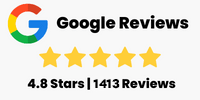What is an Anal Fissure?
An anal fissure is a small cut or tear in the skin around the anus. This area is very sensitive, so the tear can cause pain, especially during and after bowel movements. Anal fissures are common and can happen to anyone. They are not serious but can be uncomfortable and sometimes hard to heal without the right care.
Types of Anal Fissures
There are two main types of anal fissures:
- Acute Anal Fissure: This is a fresh tear that is less than 6 weeks old. It often heals on its own with home care.
- Chronic Anal Fissure: This fissure lasts more than 6 weeks. It may not heal easily and can come back again. It may need stronger anal fissure treatment, such as medications or anal fissure surgery.
What are the Causes of Anal Fissure?
Anal fissures usually happen when the anus is stretched too much. This can cause the skin to crack. Some common anal fissure causes include:
- Passing hard or large stools
- Straining during bowel movements
- Constipation or diarrhea
- Childbirth
- Anal sex
- Inflammatory conditions like Crohn's disease
Signs and Symptoms of Anal Fissure
Anal fissures can cause several signs that are easy to notice. These anal fissure symptoms include:
- Sharp pain when passing stool
- Burning or itching around the anus
- Bright red blood on toilet paper or in the stool
- A visible crack or tear in the skin
- A small lump or skin tag near the tear
If the fissure becomes chronic (lasts more than 6 weeks), symptoms might come and go.
Diagnosis of Anal Fissure
Doctors can usually find an anal fissure by gently looking at the anus. If it’s too painful to check right away, the doctor may give you a numbing cream. In some cases, the doctor may suggest further tests if they think the fissure is caused by something else, like an infection or bowel disease.
Non-Surgical Anal Fissure Treatment Options
Most anal fissures heal on their own in a few weeks with home care and anal fissure medication. Here are common non-surgical options:
- Anal fissure cream: Numbing creams or ointments help reduce pain and allow healing.
- Stool softeners: These make bowel movements easier and less painful.
- Sitz baths: Sitting in warm water for 15–20 minutes helps relax the muscles and reduce pain.
- Increased fiber and water: Helps soften the stool and prevent constipation.
- Pain relievers: Mild over-the-counter pain medicines can help.
Surgical Anal Fissure Treatment
If the fissure does not heal after trying medications, the doctor may suggest anal fissure surgery. The most common surgery is called lateral internal sphincterotomy. It involves making a small cut in the anal muscle to reduce pressure and help the tear heal.
Surgery is safe and very effective. Most people recover well and do not get fissures again.

Dr. Sumeet Shah
MBBS, MS - General Surgery, DNB - General Surgery, General Surgeon,Laparoscopic Surgeon,Bariatric Surgeon

Dr. Nabanita Chatterjee
MBBS, MS - General Surgery, General Surgeon
Prevention and Recovery Tips
To prevent fissures from coming back, and to heal faster, try these tips:
- Drink lots of water every day
- Eat high-fiber foods like fruits, vegetables, and whole grains
- Avoid straining during bowel movements
- Use the bathroom as soon as you feel the urge
- Keep the anal area clean and dry
- Avoid spicy food if it causes irritation
When to See a Doctor
If you have pain or bleeding during bowel movements for more than a few days, you should see a doctor. Quick treatment helps you avoid more pain and bigger problems. At SCI Hospital, our experts are here to help you with fast and gentle care.
Final Thoughts
An anal fissure can be painful, but it is treatable. With the right care, most fissures heal quickly. If pain or bleeding doesn’t go away, the doctors at SCI Hospital in Delhi can help you find the best anal fissure treatment, including anal fissure cream, medication, or surgery if needed.
FAQs
Adopting a high-fibre diet and using topical treatments can speed up healing. This approach helps soften stools and reduce pain, promoting faster recovery.
Yes, most acute fissures heal without medical intervention. With proper care and lifestyle adjustments, many fissures can resolve on their own within a few weeks.
Constipation and straining during bowel movements are primary causes. These factors can lead to tears in the anal lining, resulting in fissures.
Chronic fissures represent the final stage, often requiring surgical intervention. These are fissures that persist beyond six weeks or recur frequently.
While not usually serious, they can cause significant discomfort. Fissures can lead to pain, bleeding, and itching, impacting daily life.
Yes, regular exercise like walking can promote healthy bowel movements. This can help prevent constipation and reduce the risk of developing fissures.
It appears as a small tear in the anal lining, often visible during an examination. This tear can be painful and may bleed during bowel movements.
Consult Now
Our Patients Love Us
Excellent



